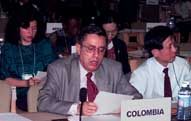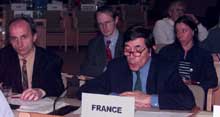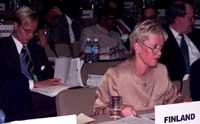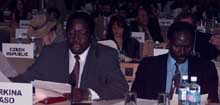|
|
|
|
THE
TWENTIETH SESSION OF THE GOVERNING COUNCIL OF THE UNITED NATIONS
ENVIRONMENTAL PROGRAM Nairobi,
Kenya |
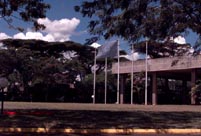 |
|
|
|
||||||||||||||||||||||||
|
The 20th session of the United Nations Environment Programme (UNEP) Governing Council took place at UNEP headquarters in Nairobi, Kenya, from 1-5 February 1999. This session marked the first meeting of the Council since the adop-tion of the Nairobi Declaration on the Role and Mandate of UNEP, the UN General Assembly Special Session to review the implementation of Agenda 21, and the appointment of Dr. Klaus Töpfer as UNEP Executive Director. The session consisted of a three-day technical segment and a two-day high-level segment. Approximately 600 delegates, including ministers and senior government officials from over 100 countries, as well as represen-tatives from environmental non-governmental organizations (NGOs), UN agencies, international organizations, business and industry, and youth organizations attended the week-long meeting. |
|
|
|
High-Level Ministerial Segment
For the complete selection of images and RealAudio please go to the day's page:
- 5 February: Page 1 - Page 2
- 4 February
- 3 February
- 2 February
- 1 February
© Earth Negotiations Bulletin, 1998. All rights reserved.


